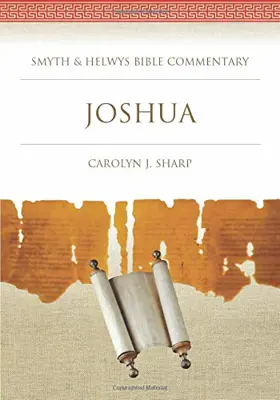

Joshua
in Smyth & Helwys Bible Commentary
Pages
456
Publisher
Smyth & Helwys
Published
2019
ISBN-13
9781641731669
Collections
This book appears in the following featured collections.
- Commentaries by Female Scholars by John Dyer
Reviews
Carolyn Sharp’s commentary on Joshua (S&HBC, 2019) is a welcome voice in the studies of this very troubling book.
Along the way through the study, Sharp offers some solutions to the obvious setting of Joshua as it pertains to the extermination of indigenous Canaanites. She takes many opportunities to show accounts from the perspective of the vanquished. There are many sidebars that speak from the perspective of Native Americans and their plights at the hands of the westward push of the United States. Sharp includes where she can writings from ancient grieving Canaanites who died resisting the Israelite aggressors (248). She wrote, “Any cessation of hostilities won by the sword is not true rest” (253). One helpful solution for Christians, she offers, is that we can protest to God with lamentation over the suffering we read in Joshua and over other suffering we see around us. “In response to anyone who might claim that militarized extermination of enemies is authorized by god or that God’s ways narrated in Joshua are sovereign and ought not to be contested, one may respond that lament, too, is eminently biblical” (253).
Sharp suggests, and I agree with her on this, that any notion that the Canaanites deserved to die is not necessarily a true reflection on the character of God. Rather, it is the perspective of the scribe(s) who chronicled the accounts in the book. “To contemporary ears,” she writes, “it may sound absurd to say that all Canaanite indigenes, including noncombatants, brought torturous deaths upon themselves through the will of Yhwh at the hands of divinely appointed invaders. Indeed, the present author robustly declines that logic. But it is evidence of scribal theological and ethical reflection on the challenges presented by the countless deaths narrated in these sacred texts—including the deaths of all the Egyptian firstborn sons back in the time of Moses and the deaths of entire villages of Canaanite families in the time of Joshua” (241).
Sharp approaches her exegesis from the assumption of Christian pacifism (192) and it shows.
Sharp offers some valuable connections that address concerns for modern Christian readers. One important connection has to do with the value of a fresh theological perspective that can be gained from outsiders. Churches should not be closed communities. They should integrate their culture with others who may join the community late in their church lives. Good stuff.
Sometimes Sharp goes into lengthy study on topics that would interest few readers—like when she takes a deep dive into Yahweh’s lordship over the heavenly hosts (a spin-off study from Joshua 10:12-13).
I find Joshua difficult too. I confess that Sharp’s suggestions on how modern readers might handle the disturbing attitudes in the book left me a bit hollow. Most of her approach was to admit that the stories are terrible, just terrible; and the modern reader should just reject that kind of behavior from God and God’s people. She touched on the likelihood that the stories were embellished for an exilic or post-exilic audience. If that’s true, then the stories in Joshua are fanciful and we should not read them as events that actually happened. That approach is fine; but then we need a little more help in how we could read Joshua as sacred scripture with the exilic or post-exilic reader in mind. She suggested that we could accept the accounts as accurate and then we can respond with lamentation. That works too. The idea should be fleshed out a little more. If we go to God in lamentation, does God learn a better way to deal with human iniquity? Is the conquest of Canaan a part of God’s quest for covenant with man that eventually led God to the offering of the Messiah? I find that solution surprisingly satisfactory; but Sharp didn’t take her lamentation motif that far. Maybe she should have.
The only real surprise to me was that Sharp did not comment on the role of dishonesty in Rahab’s protection of the Israelite spies.
